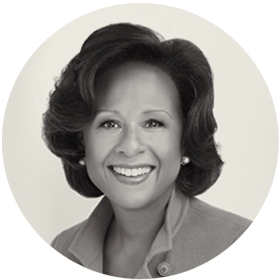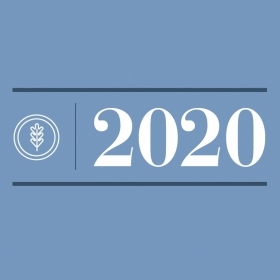When the pandemic hit the United States in spring 2020, the alumnae network sprang into action to support students, particularly seniors.

When the pandemic hit the United States in spring 2020, the alumnae network sprang into action to support students, particularly seniors. Career Education quickly put together the Senior Support Network, pairing members of the class of ’20 with alumnae in their fields. By mid-June 2020, the College was able to match all 332 interested seniors with alumnae—about 60% of the class. And by December, 94% of the class reported they had a job, had enrolled in graduate school, or were participating in volunteer or military service (compared with 96% for the classes of 2017 through 2019).
“We don’t have numbers about the individual role the Senior Support Network played, compared to the micro-internships and the many other interventions we put in place last spring, but the class of 2020 did well. They did really well, thanks to the network,” says Jennifer Pollard, executive director and associate provost of Career Education.
Career Education decided that since the Senior Support Network was so well received, they should offer it again for the class of ’21. “For the class of 2020, obviously there was this urgent rallying cry around them. But the reality is that for the class of 2021, they’re likely to be hit even harder by the pandemic,” says Tess Mattern, associate director of marketing and operations, who helped build the network.
However, unlike in 2020, seniors have had almost the entire academic year to take advantage of the Senior Support Network. Career Education sent a survey to seniors in the early fall, and then began the process of matching them with mentors by hand. At the suggestion of WCAA board member Leilani Stacy ’18, instead of just one-on-one pairs, Career Education also created mentoring “pods” of seniors and multiple alums. Many pods are built around intersecting identities and interests, such as education and LGBTQ identities. There are ecology and the environment pods, a fashion pod, and medical school pods.
When Stacy mentioned the idea of “pods” to Career Education, “I think I was thinking about it from a new alum perspective. I can offer some things to current students,” she says. “But also, someone who’s 10 years out in their career can offer different things, both to me and to someone who’s just graduating from Wellesley.”
That’s exactly what’s happening in Stacy’s pod right now, which is focused on law. Stacy is a first-year law student at the University of Southern California, and her pod includes two Wellesley seniors and an alum who’s about 10 years into her career as a lawyer. Stacy says the other alum provides their pod with a broad perspective on issues like what it’s like being a woman of color in the legal profession, and what kind of schools students might want to choose for different reasons. Stacy herself can speak to the nitty-gritty details of applying to law school right now.
One thing that the Senior Support Network has made clear, says Pollard, is how useful it is for the College to help students make that first connection with alums. “When we launched the Hive three years ago, we took the approach of empowering students and alums to connect on their own. … That works for some students, but adding a layer of intentional programming supports our goal of creating accessible pathways for all students, including those who may be first-generation and wanting to connect with a mentor for the first time,” says Pollard. But she hopes that their experience with the Senior Support Network will empower them to reach out to the network on their own in the future—both to ask for and to give support to members of the Wellesley community.


